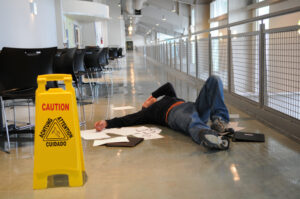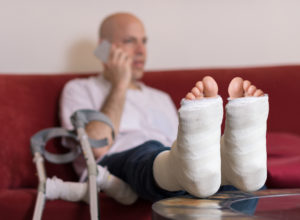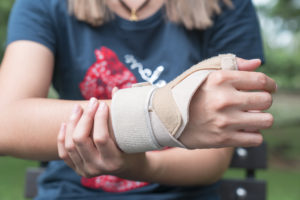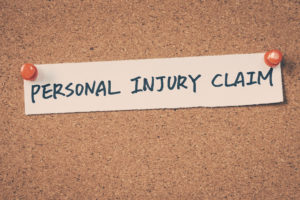 Risk of Liability for Storeowners
Risk of Liability for Storeowners
Retailers are constantly at risk of liabilities most of which involve their customers. Generally, as property owners, they have a duty to ensure their property does not contain hazards. According to Illinois law, their customers are basically ‘invitees’ who are entitled to a reasonable amount of care while they are on said property.
So yes, if a customer is injured on their property, retailers can be held liable for damages. This can include hazards they created knowingly or unknowingly, which they failed to eliminate in a timely manner.
The Importance of Premise Liability
Areas, where customers should be safe from harm, include dressing rooms, parking lots, aisles, and restrooms. All these areas should be maintained on a regular basis to ensure they are free of hazards. If a retailer fails to do this and a customer gets injured because of his/her negligence, they can be sued.
This is called premise liability and the level of care that the retailer should have shown will depend on whether the injured party was:
An invitee – Someone who was invited onto the property for the benefit of the owner (such as customers).
A licensee – Someone who was allowed to enter the property to visit the owner for personal reasons.
A trespasser – Someone who entered the property without the consent of the owner. The property owner does not owe them a duty of reasonable care.
The Case for Slip and Fall Accidents
The most common injuries in retail stores are usually the result of slip and fall accidents. The accident typically occurs when an individual slips on a foreign substance or because of a hazardous condition in-store. This can be from anything from spilled milk that was not cleaned up in a timely manner to broken tiles that the retailer did not replace in time. You can also sue for additional damages if the property owner did not place warning signs around such areas.

If you slipped and fell in a retail store and suffered from injuries that could have been avoided, you have the right to claim compensation for your pain, suffering, and medical costs. The Law Offices of Robert T. Edens has over two decades of experience protecting the rights of accident victims such as yourself. Get in touch with us for an in-depth consultation today! Do not hesitate to reach out to us at our offices in Libertyville, Waukegan, Woodstock, and Antioch, Illinois.

 Premises Liability is a commonly used term for the responsibility held by the property owner for any injuries or damage sustained by other people on their property. Establishing liability helps the courts ascertain who should compensate the injured party in case of an accident. Although, simply getting hurt on someone else’s property does not automatically establish premises liability. There are certain conditions stated in the
Premises Liability is a commonly used term for the responsibility held by the property owner for any injuries or damage sustained by other people on their property. Establishing liability helps the courts ascertain who should compensate the injured party in case of an accident. Although, simply getting hurt on someone else’s property does not automatically establish premises liability. There are certain conditions stated in the  When you have a visitor on your property, you automatically are liable to make sure that nothing on your property may cause them a personal injury. This concept is the basis of all premises liability cases. You as a building occupant are responsible for creating a safe environment and ensuring that visitors are aware of the dangers present on the property and can avoid them with advance knowledge.
When you have a visitor on your property, you automatically are liable to make sure that nothing on your property may cause them a personal injury. This concept is the basis of all premises liability cases. You as a building occupant are responsible for creating a safe environment and ensuring that visitors are aware of the dangers present on the property and can avoid them with advance knowledge. Local, county, and state governments own many properties, ranging from office buildings and schools to parks and sidewalks. Just like private businesses and homeowners, the authorities have the duty to maintain their property and make them safe for the public.
Local, county, and state governments own many properties, ranging from office buildings and schools to parks and sidewalks. Just like private businesses and homeowners, the authorities have the duty to maintain their property and make them safe for the public.